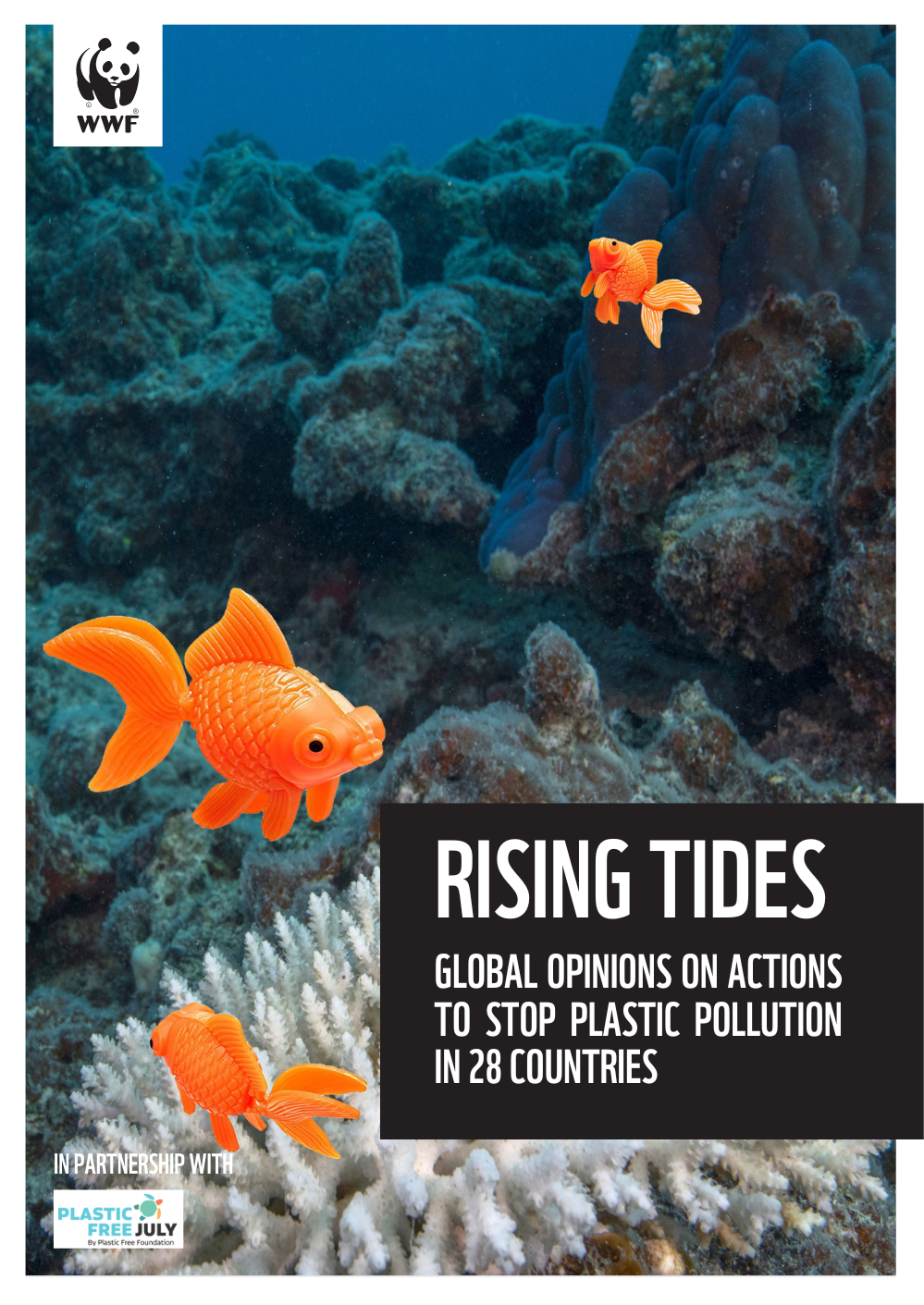Plastic production, consumption and pollution levels have increased exponentially since the 1950s and incur significant environmental, social and economic costs. Unless action is taken, plastic waste generation will double and the flow of plastic pollution into the ocean will triple by 2040.

In February 2022, at the UN Environment Assembly meeting in Nairobi, UN member states will have an opportunity to start the process of developing such a treaty, a chance to enable a global systemic change at scale.
This research sought to measure public awareness and levels of support for an agreement in 28 countries around the world for a legally binding global instrument to address plastic pollution.
Data was collected by Ipsos through its Global Adviser survey. WWF and the Plastic Free Foundation worked in partnership to produce this analysis.
The results paint a picture of consistent and unwavering calls from citizens across all regions for strong and legally-binding global rules that can cut plastic pollution by prioritising measures that ban harmful, avoidable plastics and which ensure the plastics we do use can be safely reused and recycled.


